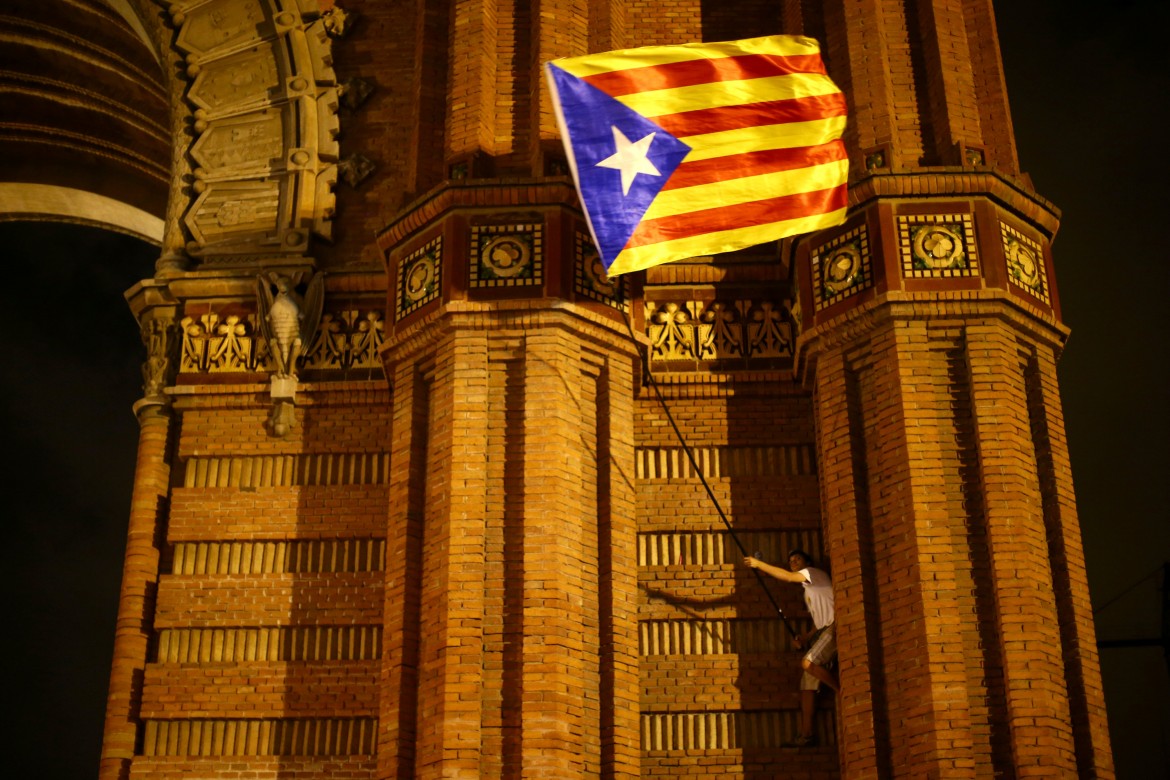Commentary
Puigdemont's insidious capitulation
Independence politicians always underestimate the class relationships and the contradictions that bisect the society.

A long list of injustices. Proud praise of a peaceful and democratic path. A story of empty promises, humiliations and abuses of power.
These complaints are the basis of Catalan President Carles Puigdemont’s claim that the region’s aspirations to independence are legitimate, a reaffirmation that secession is the ultimate goal of his tenure. But no historic split happened in Barcelona last night. The dreaded separation from Spain turned into an “ongoing process.”
Dialogue, negotiation, mutual understanding and sense of responsibility were the recurring words throughout his speech. The pressure had reached dangerous levels and had to be let down. Not a surprising outcome.
From early October up to now, numerous signals had indicated that the strength ratios were not favorable to a unilateral declaration of independence — not even in Catalonia itself. Cracks had opened up within the separatist campaign itself. In today’s Europe, abrupt and traumatic options, like the secession of Barcelona would have been, remain impracticable. Moreover, the Catalan referendum was not at all a “coup d’etat,” as the Spanish right keeps insisting, but neither was it a revolution as the most radical separatists imagined.
Independence politicians always underestimate the class relationships and the contradictions that bisect the society. And they nourish the illusion that the possibility of realizing a particular social model is a question of scale, of homogeneity of language, of culture, of history, capable of reconciling opposing interests. History has dealt countless repudiations of this conviction.
Of course, today, the question of sovereignty is more confused than ever.
Europe, which in theory should overcome the selfishness of nation states, is in fact a prisoner to them. And when it sets out to create general rules, it does so with the interests of the strongest in mind. The political-economic will of Wolfgang Schauble, for instances, would like to give Berlin and Paris the keys to the future “European Monetary Fund.” In Brussels, Puigdemont didn’t find any sympathy. Europe is not at all that unified political entity within which self-government of the territories can find adequate space and an opportunity for development. National governments remain its only interlocutors.
But what will happen now in Madrid? It’s difficult to declare war against ambiguity and postponement. And the push by the Catalan government and the millions of citizens who voted for independence have revealed the inadequacy of the current state of autonomy and a decisive distaste for the policies of the government in Madrid.
From Barcelona, the line of credit is mainly in the hands of the “white” protesters, those who went to the square this weekend to urge dialogue, along the lines of the position expressed by leftist Barcelona Mayor Ada Colau. But Spanish Prime Minister Mariano Rajoy has written off this reality with contempt. If he now decides on a repressive and punitive response, refusing to speak with those rogues, the crisis of Spanish stability could continue. The man is stubborn, and it’s easier for him to blunder than to back down.
Now the socialists, no longer faced with the emergency of a country to save, could distance themselves from the government’s arrogance. But in those parts, courage does not abound. Sure, Puigdemont has relented, but he’s done it in a rather insidious way.
Originally published at https://ilmanifesto.it/il-passo-indietro-insidioso-di-puigdemont/ on 2017-10-11
